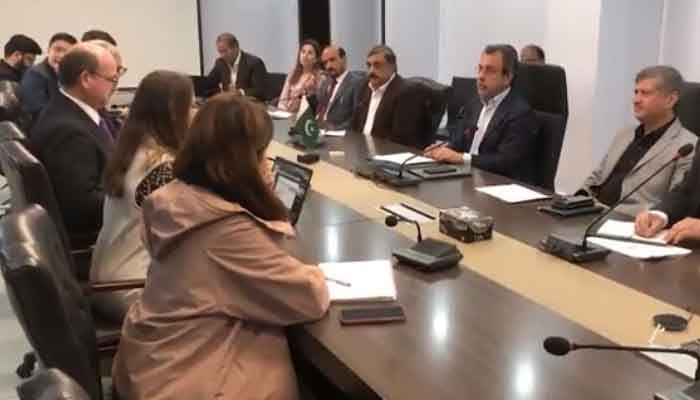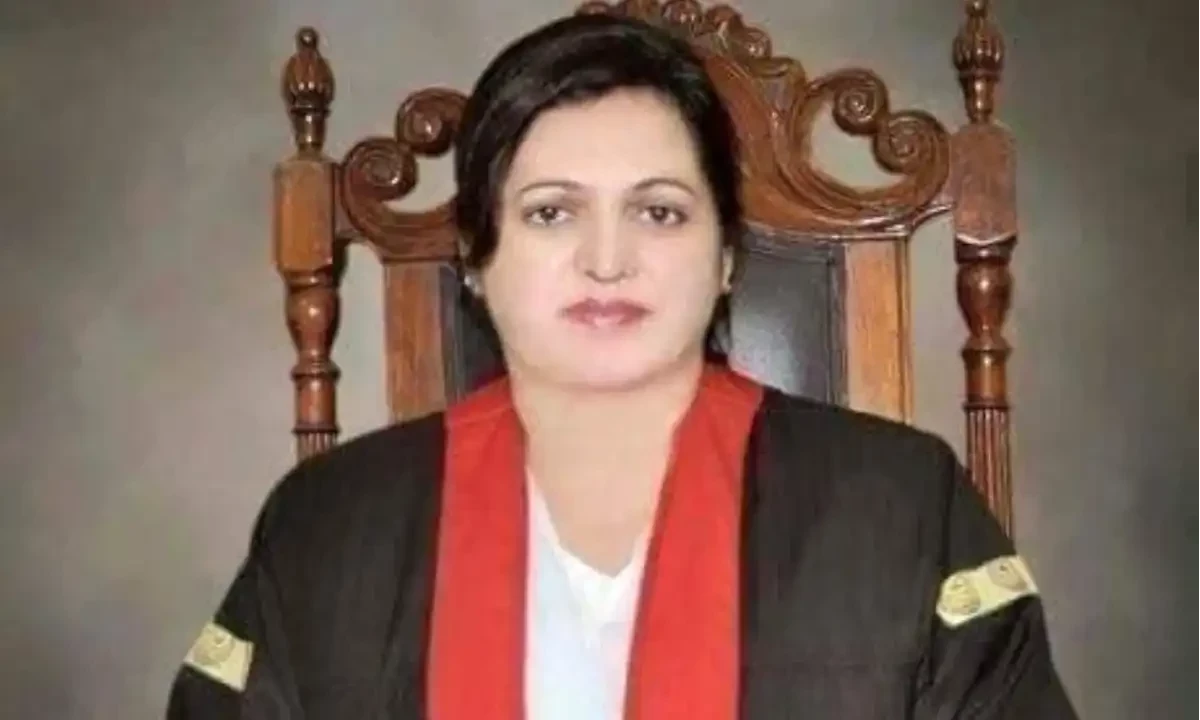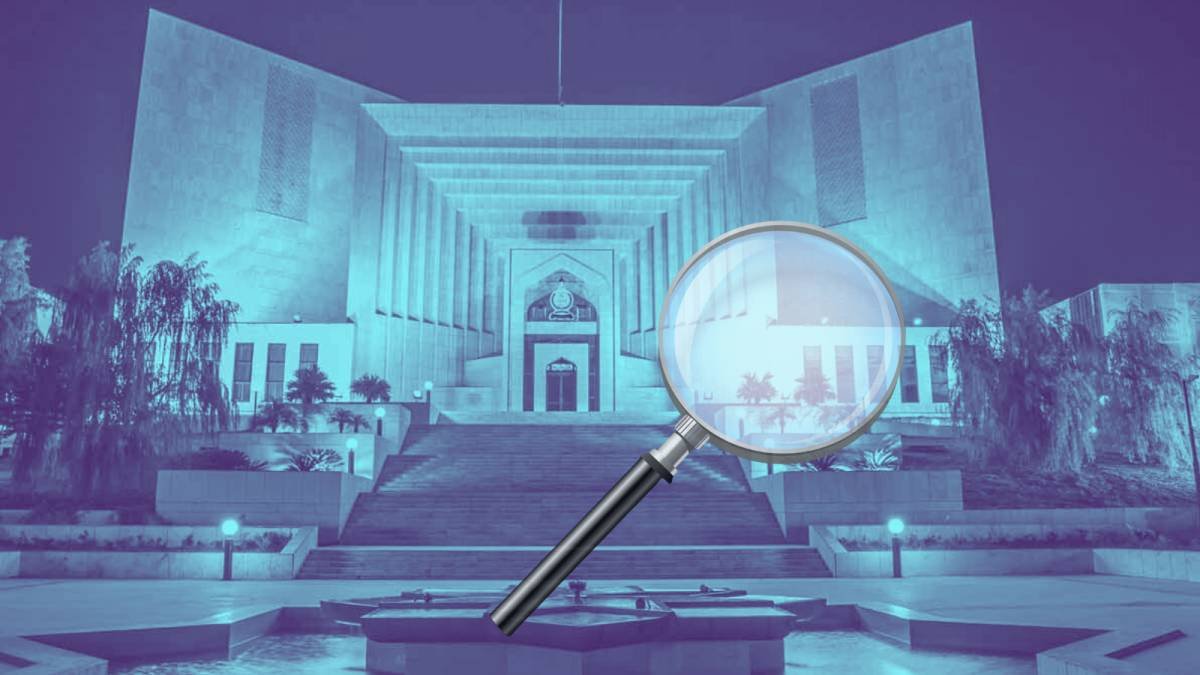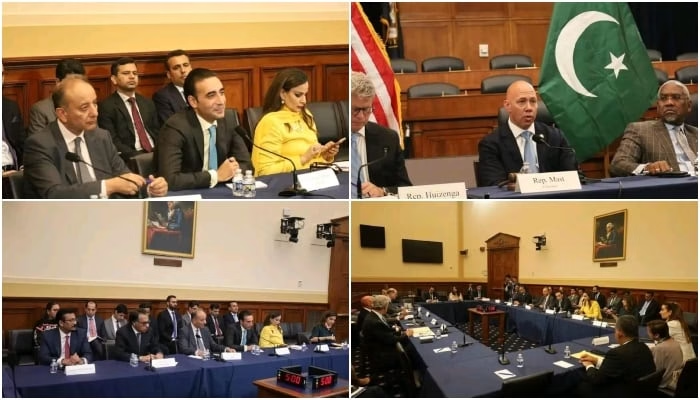Pakistan’s Federal Minister for Energy, Owais Leghari, has announced that the government will no longer purchase additional electricity. The decision, revealed during a meeting with international development partners, marks a crucial step in Pakistan’s broader power sector reforms.
High-Level Meeting on Power Sector Reforms
Federal Minister Owais Leghari held an extensive discussion with key international stakeholders regarding reforms in Pakistan’s power sector. The meeting was attended by prominent organizations, including:
- World Bank (led by Country Director Naji Benhassin)
- International Monetary Fund (IMF)
- Asian Development Bank (ADB)
- International Finance Corporation (IFC)
- KfW (German Development Bank)
- German Embassy
- Foreign, Commonwealth & Development Office (FCOD, UK)
- United Nations Development Programme (UNDP)
- Asian Infrastructure Investment Bank (AIIB)
The presence of these global financial institutions underscores the international community’s keen interest in Pakistan’s energy sector and its long-term sustainability.
Key Announcements: No More Electricity Purchases
During the meeting, Owais Leghari made a landmark declaration:
The government will no longer purchase electricity.
This decision is part of Pakistan’s broader strategy to transition towards a more efficient and cost-effective energy system. The move is aimed at reducing financial strain on the economy while promoting private sector participation in the energy market.
IPPs and Power Sector Restructuring
Leghari assured the international delegation that negotiations with Independent Power Producers (IPPs) are being conducted in a free, fair, and transparent manner. IPPs have been given three options:
- Negotiation on revised terms.
- Mediation through a neutral third party.
- Forensic audit of power agreements.
This step is crucial in addressing long-standing disputes over power purchase agreements, which have been a major contributor to Pakistan’s circular debt crisis.
Transition from ‘Take or Pay’ to ‘Take and Pay’ Model
A key component of the reform strategy is the transition from the “take or pay” model to the “take and pay” model.
- Under the take or pay system, the government was obligated to purchase a fixed amount of electricity from power producers, whether it was needed or not.
- The new take and pay model allows for purchasing only what is required, reducing unnecessary financial burdens on the economy.
Additionally, the government is planning to phase out furnace oil-based power plants, shifting towards more sustainable and affordable energy sources.
Roadmap to Eliminate Circular Debt
One of Pakistan’s biggest economic challenges is the rising circular debt in the power sector, which has crippled financial stability. Leghari revealed that the government has devised a 5 to 8-year roadmap to eliminate this debt, ensuring long-term fiscal sustainability.
Key strategies include:
- Rationalizing electricity tariffs to reflect actual costs.
- Reducing inefficiencies and leakages in power distribution.
- Strengthening the transmission infrastructure to minimize energy losses.
Rationalizing Net Metering
Leghari also emphasized that the government is planning to rationalize net metering, a system that allows consumers to sell excess solar power back to the grid. While net metering has been beneficial in promoting renewable energy, it needs to be structured in a way that maintains balance in the energy market.
Wholesale Electricity Market and Tariff Reductions
The delegation was briefed on the upcoming wholesale electricity market, which aims to introduce competitive pricing mechanisms in the power sector. This shift is expected to:
- Reduce electricity costs for businesses and consumers.
- Enhance transparency in power procurement.
- Encourage private sector investment in energy generation.
Leghari underscored the importance of lowering electricity tariffs, stating that affordable energy is vital for economic growth and industrial competitiveness.
Global Support for Pakistan’s Power Reforms
The meeting concluded with international development partners expressing their support for Pakistan’s energy sector reforms. Organizations like the World Bank, IMF, and ADB have committed to assisting Pakistan in implementing sustainable solutions to its power crisis.
Their backing could lead to further financial assistance, technical expertise, and investment in renewable energy projects, strengthening Pakistan’s energy security.
A Bold Step Toward Energy Sustainability
The government’s decision to stop purchasing electricity marks a turning point in Pakistan’s power sector. By moving towards a more efficient “take and pay” system, addressing circular debt, and rationalizing tariffs and net metering, Pakistan is taking steps toward long-term energy sustainability.
While challenges remain, the international community’s support signals confidence in these reforms. The coming years will determine how effectively these policies are implemented and whether they can truly transform Pakistan’s power sector for the better.



